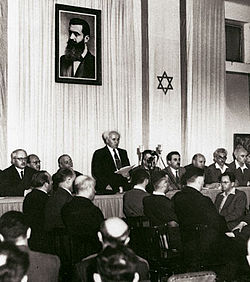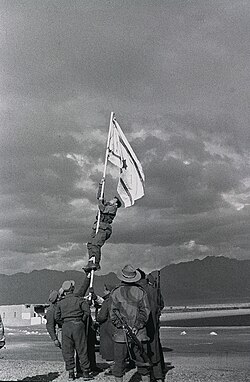| << | May 1948 | >> | ||||
|---|---|---|---|---|---|---|
| Su | Mo | Tu | We | Th | Fr | Sa |
| 1 | ||||||
| 2 | 3 | 4 | 5 | 6 | 7 | 8 |
| 9 | 10 | 11 | 12 | 13 | 14 | 15 |
| 16 | 17 | 18 | 19 | 20 | 21 | 22 |
| 23 | 24 | 25 | 26 | 27 | 28 | 29 |
| 30 | 31 | |||||

The following events occurred in May 1948:
Contents
- May 1, 1948 (Saturday)
- May 2, 1948 (Sunday)
- May 3, 1948 (Monday)
- May 4, 1948 (Tuesday)
- May 5, 1948 (Wednesday)
- May 6, 1948 (Thursday)
- May 7, 1948 (Friday)
- May 8, 1948 (Saturday)
- May 9, 1948 (Sunday)
- May 10, 1948 (Monday)
- May 11, 1948 (Tuesday)
- May 12, 1948 (Wednesday)
- May 13, 1948 (Thursday)
- May 14, 1948 (Friday)
- May 15, 1948 (Saturday)
- May 16, 1948 (Sunday)
- May 17, 1948 (Monday)
- May 18, 1948 (Tuesday)
- May 19, 1948 (Wednesday)
- May 20, 1948 (Thursday)
- May 21, 1948 (Friday)
- May 22, 1948 (Saturday)
- May 23, 1948 (Sunday)
- May 24, 1948 (Monday)
- May 25, 1948 (Tuesday)
- May 26, 1948 (Wednesday)
- May 27, 1948 (Thursday)
- May 28, 1948 (Friday)
- May 29, 1948 (Saturday)
- May 30, 1948 (Sunday)
- May 31, 1948 (Monday)
- References
